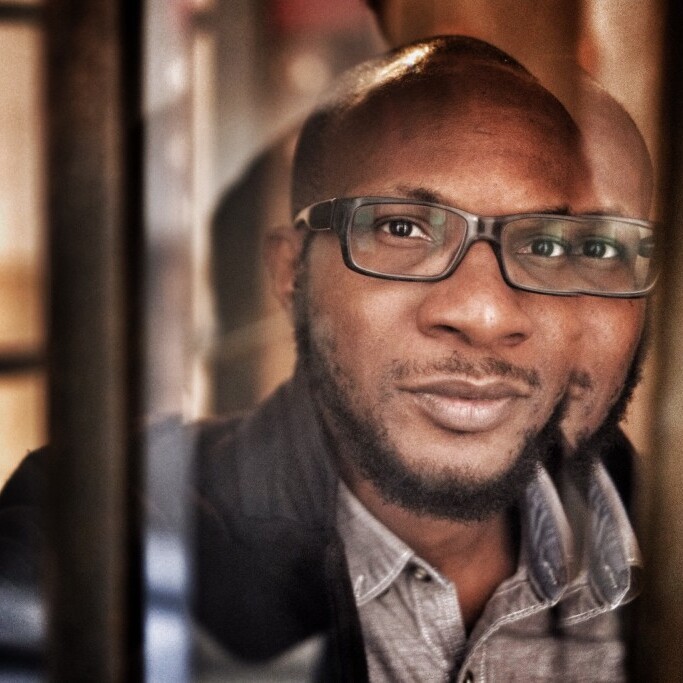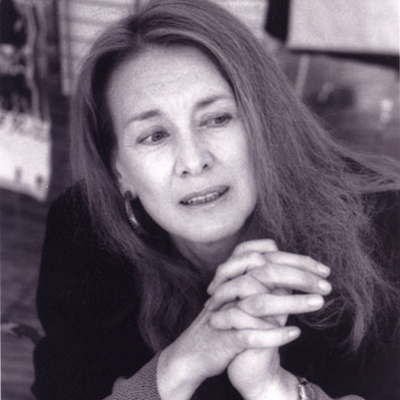Teju Cole. Photo: Martin Lengemann Jewish Currents is seeking reader questions about the situation in Israel/Palestine for an explainer piece that will be reported on a rolling basis over the coming weeks. At The Nation, read an excerpt from Dan Sinykin’s Big Fiction about the invention of the term “literary fiction” some four decades ago: “Under newly intense economic pressure, publishers used it to describe less overtly market-driven work; booksellers described their shops as featuring literary fiction—or not; and book reviewers held it up as a standard to aspire to.” In his New Yorker review of Teju Cole’s new
Jon Fosse. Photo: Tom A. Kolstad / Det Norske Samlaget Jon Fosse has been awarded the Nobel Prize in Literature. Last year, Merve Emre interviewed the Norwegian author for the New Yorker. “I have to go to the borders of my mind, and I have to cross these borders,” Fosse told Emre. “And to cross these borders is frightening if you’re feeling very fragile. I was like that for some years. I simply didn’t dare to write my own things because I was afraid of crossing these borders in myself. When I’m writing well, I have this very clear
Miranda July. Photo: Todd Cole. Lauren Oyler has announced that her new book of essays, No Judgment, will be published in March 2024. She described the book as “Eight new essays, nothing previously published, on gossip, Goodreads, Berlin, autofiction, vulnerability, anxiety, spoilers, and revenge.” The Guardian looks at the betting odds for the Nobel Prize in Literature, which will be announced tomorrow morning. Can Xue is currently leading at 8 to 1, with Haruki Murakami, Margaret Atwood, and Salman Rushdie also said to be favorites. In the spring 2020 issue of Bookforum, Gerald Howard made the case for why
Nana Kwame Adjei-Brenyah. Photo © Limitless Imprint Entertainment The National Book Awards longlist has been announced. Among the finalists are Nana Kwame Adjei-Brenyah for Chain-Gang All-Stars, Justin Torres for Blackouts, Christina Sharpe for Ordinary Notes, and Bora Chung for Cursed Bunny. At Washingtonian magazine, Andrew Beaujon has put together an oral history of the events behind the film Shattered Glass (2003), which tells the true story of disgraced New Republic reporter Stephen Glass. “What everyone says about him is he was this brilliant writer who couldn’t report any facts,” said New York columnist Jonathan Chait, who was in the
Michael Chabon is one of the authors who has filed a lawsuit against companies who have used his books to train AI. Photo: Gage Skidmore Alex Reisner writes about the more than 170,000 books that were used, without permission, to train various AI systems. The dataset, known as Book3, is now at the center of a series of copyright-infringement lawsuits brought by Michael Chabon, Sarah Silverman, and others. Reisner, who has now publicizing a search tool that allows you to see what books have been used in the AI projects, writes: “I’ve heard from several authors wanting to know
Rumaan Alam The Writers Guild of America has voted to accept a deal with Hollywood studios, and the strike order has ended. Hollywood writers will vote on ratifying the contract in early October. The new Dilettante Army is out now. The Fall 2023 edition is called “Definitive Guide,” and asks its contributors to think about what guides are good for, how they might stifle, and what their radical possibilities might be. The issue includes work by Abby Kluchin and Patrick Blanchfield, Adora Svitak, Christopher Reeves, and many more. Farrar, Straus, and Giroux have acquired Catherine Lacey’s next two books.
The White Review The White Review, the London literary magazine founded in 2011 by Ben Eastham and Fitzcarraldo Editions publisher Jacques Testard, is indefinitely pausing its day-to-day publishing operations, citing lack of funding and the cost of living crisis. The board of trustees is now seeking consultation as to the magazine’s future. In a statement, the Review thanks its outgoing staff and contributors, including Claire-Louise Bennett, Legacy Russell, Lynette Yiadom-Boakye, Fernanda Melchor, Sally Rooney, Brandon Taylor, Anne Carson, Joshua Cohen, among many others. The Writers Guild of America has reached a tentative deal with Hollywood studios. At Jacobin, Alex
Hannah Zeavin The 2023 Booker Prize shortlist has been announced. In March 2024 Knopf will publish a book of song lyrics written by novelist and Nobel winner Kazuo Ishiguro. The book, titled The Summer We Crossed Europe in the Rain, will include the lyrics to sixteen songs, all of them written for the jazz singer Stacey Kent. Yale University Press has given a sneak peak at the Fall 2024 titles in its Jewish Lives series, including Ruth Franklin’s Anne Frank, Masha Gessen’s Hannah Arendt, and Sasha Frere-Jones’s Bob Dylan. Slate has a droll recap of Joyce Carol Oates’s tweet
Naomi Klein For Harper’s Magazine, Tobi Haslett looks at the work of Annie Ernaux. Haslett writes, “Ernaux’s works aren’t coy or glancing; they’ve been sharpened to a point. Though she seems like a writer of details, each book is a vital mission, carried out with thrusting force.” For more on Ernaux, see Jamie Hood’s review of The Young Man in the new Bookforum. Jonathan Franzen, John Grisham, and more novelists are filing a lawsuit alongside the Authors Guild against OpenAI. The suit contends that training the AI chatbot on their work “without a word of permission from or a
Nicolas Cage as Miller in Butcher’s Crossing. Credit: Saban Films The trailer for Gabe Polsky’s film adaptation of John Williams’ 1960 western Butcher’s Crossing has been released. Nicolas Cage tells Entertainment Weekly that his performance as buffalo hunter Miller was inspired in part by watching Michael Jordan on the court. Frequent Bookforum contributor Charlotte Shane has started a Substack, Meant for You. In the first entry, she writes about binge-reading romance novels in an attempt to get more acquainted with bestsellers: “The underlying desires are so clear, the yearning so intelligible: to be worshipped and thirsted after by the hottest
Poet Monica Youn is on the long list for the National Book Award (photo: Sarah Shatz) The National Book Award has now released the longlists for its annual awards in nonfiction, poetry, and translated literature. The finalists in all categories will be announced on October 3. St. Martin’s Press is planning to publish a memoir by Christina Blasey Ford, the psychology professor who, in 2018, testified that Brett Kavanaugh sexually assaulted her at a party in the 1980s. Tonight at the PowerHouse Arena in Brooklyn, author Sean Howe will celebrate the release of his new bookAgents of Chaos, which
Namwali Serpell. Photo: © Jordan Kines Photography. Atlantic Books has acquired Namwali Serpell’s next two books: On Morrison, a book-length engagement with the Nobel Prize–winning author, and I Am Dead, a collection of twenty essays. Serpell posted in response to the news, “Delighted about this! There’s no other mind I’d rather spend time with than Toni Morrison’s.” In 2022, Sarah Jaffe talked with Serpell about her novel The Furrows for Bookforum. The National Book Foundation has revoked Drew Barrymore’s invitation to host this year’s National Book Awards. The foundation cited Barrymore’s decision to resume production of her talk show:
Annie Ernaux Annie Ernaux’s latest novel, The Young Man, was published in English translation today. Ernaux, winner of the 2022 Nobel Prize, was profiled in May by Rachel Cusk in the New York Times Magazine. You can read an excerpt of the novel in Vogue and a review by Jamie Hood in the new issue of Bookforum. The legendary independent bookstore City Lights is celebrating its seventieth birthday this year. The San Francisco store will host a full slate of poetry readings, book talks, and online panels and discussions. Kaitlin Phillips shares three books she’s read recently. Considering Elfriede
Merve Emre The Oslo-based online literary magazine Vinduet has published Merve Emre’s lecture on the function of criticism. Emre says, “To narrate the authority of criticism in all its richness and variety requires starting from the inside of this arrangement, from the critic’s mind, and working our way outward, to the contexts in which criticism circulates.” Her lecture does just that, ranging from the 1655 collection The World’s Olio, through considerations of George Eliot’s Middlemarch, Virginia Woolf, Toni Morrison, and more. Paul Yamazaki, a bookseller who has worked at City Lights for more than fifty years, will receive the
Elif Batuman. Photo: Valentyn Kuzan In a review of The Fraud for Vulture, Andrea Long Chu considers Zadie Smith’s trajectory as a novelist, arguing that since her debut in 2000 with White Teeth—which James Wood famously described as “hysterical realism”—Smith’s work has become increasingly moral and conventionally realist. Referencing Smith’s 2008 essay “Two Paths for the Novel,” Chu writes: “Her two paths for the novel have become a perfect circle: What could be more avant-garde in an age of data harvesting and identity politics than a heartfelt 19th-century novel?” “Did ChatGPT seriously just recommend I ‘delve into Proust’s monumental
Rachel Monroe. Photo: Emma Rogers At the New Yorker, Rachel Monroe, the author of Savage Appetites: Four True Stories of Women, Crime and Obsession, reports on how rising population and rising temperatures are causing the state’s legendary swimming holes to dry up. At The Nation, Suchitra Vijayan, a barrister at law and the author of Midnight’s Borders: A People’s History of Modern India, reports on India’s crackdown on Kashmir’s free press, exhibited most recently in the blocking of the website and social-media pages of the Kashmir Walla, an independent news outlet based in Srinagar. The Queen Sofia Spanish Institute
Chelsea Hodson. Photo: Amelia Gray. On the Slow Stories podcast, Chelsea Hodson talks about her writing and editing process and her new imprint, Rose Books, which just published Geoff Rickly’s debut novel Someone Who Isn’t Me. The episode begins with Rickly reading his work. Track Changes: A Handbook for Art Criticism has just been published by Paper Monument. The book, edited by Mira Dayal and Josephine Heston, collects essays by twenty-five editors and writers on the craft of critical writing. You can read excerpts on n+1 and LitHub and purchase the book from the n+1 store. In the
Zadie Smith. Photo: © Ben Bailey-Smith Bookforum is thrilled to share our Summer 2023 issue, the first published with the support of our new partner, The Nation. Online now, read Sarah Nicole Prickett on Jacqueline Rose and mourning, Moira Donegan on Judith Herman’s study of trauma, Christian Lorentzen on Don DeLillo’s Cold War novels, Jane Hu on Emma Cline’s The Guest, Harmony Holiday on Christina Sharpe’s Ordinary Notes, and so much more. For Harper’s magazine, Adam Kirsch reviews Zadie Smith’s latest novel The Fraud, considering it in context of the work of other Gen X writers, including Sheila Heti,
Michelle Tea (Photo: Jenn Rosenstein) On the New York Review of Books website, Willa Glickman interviews writer and philosopher FT. FT, aka Fuck Theory, is an anonymous author who publishes essays on his Patreon as well as writes for the NYR online, 4Columns, and Bookforum, among other publications. FT told Glickman: “I think I’m in an extremely fortunate and indeed somewhat archaic position for an intellectual without independent wealth, and I’m very grateful for it. I’m often broke but my mind lives a positively decadent lifestyle.” Author Michelle Tea is launching her own press, Dopamine Books. “We want to
Yunte Huang. Photo: Sherry-Shi. The New York Times’s Casey Schwartz profiles author Yunte Huang, and talks with him about Daughter of the Dragon, his new book on the Chinese American film star Anna May Wong. At Vulture, Isle McElroy, Maris Kreizman, Emma Alpern, and Jasmine Vojdani recommend some of the forthcoming books they’re looking forward to reading this fall, including new fiction from Teju Cole, Ed Park, Lexi Freiman, and more. Writer Grace Byron talks to Study Hall about her recent essay at The Cut, “The False Gospel of Conversion Therapy.” Byron tells Daniel Spielberger, “ Story-telling is not



















